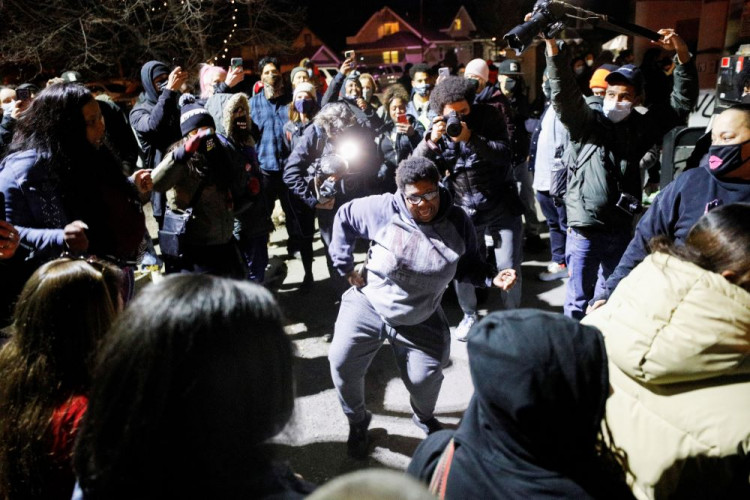More than 18 million people tuned in to TV broadcasts of the reading of the verdict in the murder trial of Derek Chauvin for the killing of George Floyd - "a huge viewership total for a late afternoon," according to preliminary data from Nielsen and reported by The New York Times.
Questions now turn to what is next for the convicted killer and former Minnesota police officer.
Judge Peter Cahill says he will sentence Chauvin in eight weeks. Between now and then law officials will conduct pre-sentence investigations looking into Chauvin's background and the circumstances of his crime.
Chauvin has been remanded in custody pending sentencing. According to The New York Times, Chauvin will be held in solitary confinement and away from other prisoners owing to "fears for his safety." He will spend 23 hours a day in his cell and will be separated from other inmates when allowed outside.
The length of Chauvin's potential sentence is unclear. Under Minnesota sentencing guidelines Cahill can increase Chauvin's sentence to the statutory maximum - 40 years.
Chauvin was convicted of three crimes but will likely serve the sentences concurrently and not consecutively, legal experts say.
<iframe width="1280" height="720" src="https://www.youtube.com/embed/mYJmb-3Sang" title="YouTube video player" frameborder="0" allow="accelerometer; autoplay; clipboard-write; encrypted-media; gyroscope; picture-in-picture" allowfullscreen></iframe>
Because Chauvin has no prior criminal conviction, his "criminal history score" under the state sentencing guidelines is zero. Therefore, his base sentence for second-degree unintentional murder is 150 months, or 12.5 years. But prosecutors claim several aggravating factors were present when Chauvin murdered Floyd - including Chauvin acted with "particular cruelty" and "abused his position of authority."
Chauvin has the right to appeal his conviction or sentence and the state court of appeals must hear this appeal. A statement by Rep. Maxine Waters, a Democrat from California, suggesting protesters needed to "stay on the street" and "get more confrontational" has already been declared by Cahill as a possible ground for appeal or even a mistrial.
Late in the trial, defense lawyer Eric Nelson asked Cahill to declare a mistrial because of Waters' statement.
Last July, lawyers representing George Floyd's family filed a federal civil rights lawsuit against Chauvin, the city of Minneapolis, and three other former officers who allegedly contributed to Floyd's murder - Tou Thao, Thomas Lane and J. Alexander Kueng. The suit alleges that these former officers used "excessive and deadly force in violation of the Fourth Amendment of the U.S. and clearly established law."
The city agreed to settle this case for $27 million last month but the suit against the four former officers continues.
The defendants have asked a judge to stay any proceedings in the civil case "pending resolution of the criminal case against the three defendants." The three remaining officers are expected to be tried in August.






